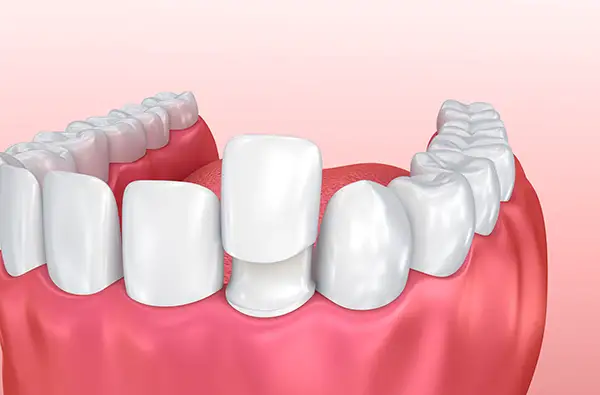Porcelain VeneersPorcelain VeneersWhen patients seek solutions for discolored, chipped, or misaligned teeth, veneers often provide the perfect balance of aesthetic improvement and durability. While teeth whitening can address surface stains and composite bonding can repair minor imperfections, porcelain veneers offer a comprehensive solution that addresses multiple cosmetic concerns simultaneously. The Benefits of Porcelain VeneersPorcelain veneers offer numerous advantages that make them a popular choice among patients seeking smile enhancement: Enhanced Aesthetics and Natural Appearance One of the most significant benefits of porcelain veneers is their ability to mimic the light-reflecting properties of natural teeth. The porcelain material creates a lifelike appearance that seamlessly blends with surrounding teeth. Unlike older cosmetic solutions that could appear obviously artificial, modern veneers provide results so natural that others will notice your beautiful smile without realizing you've had dental work done. One of the most significant benefits of porcelain veneers is their ability to mimic the light-reflecting properties of natural teeth. The porcelain material creates a lifelike appearance that seamlessly blends with surrounding teeth. Unlike older cosmetic solutions that could appear obviously artificial, modern veneers provide results so natural that others will notice your beautiful smile without realizing you've had dental work done.Stain Resistance and LongevityUnlike natural teeth and some other cosmetic treatments like composite bonding, porcelain veneers are highly resistant to staining from coffee, tea, wine, and tobacco. This stain-resistant quality ensures your smile stays bright for years to come. With proper care, porcelain veneers typically last 10 to 15 years before needing replacement, making them a long-term investment in your smile. Improved Oral Hygiene and Stronger TeethVeneers can actually contribute to better oral health in several ways. By covering damaged enamel, they provide protection and strengthen teeth that may have been weakened by decay or old fillings. Their smooth surface also makes it more difficult for plaque to accumulate compared to teeth with chips or cracks where bacteria can hide. Minimally Invasive ProcedureCompared to dental crowns, which require significant reshaping of the tooth, veneers preserve much more of your natural tooth structure. Only a small amount of enamel needs to be removed to accommodate the veneer, making it a more conservative approach to smile enhancement. Versatility in Addressing Multiple ConcernsPorcelain veneers can address numerous cosmetic issues simultaneously, including:
Are You a Good Candidate for Veneers?While porcelain veneers offer remarkable benefits, they aren't suitable for everyone. Ideal candidates typically have:
Patients with significant tooth decay, gum disease, or insufficient enamel may need to address these issues before considering veneers. Similarly, those with habits like teeth grinding (bruxism) may need to explore protective options before veneer placement. The Porcelain Veneer Procedure: What to ExpectUnderstanding the veneer placement process can help alleviate any concerns about the procedure. Here's what you can expect: Initial Consultation and PlanningYour journey begins with a comprehensive consultation where your dentist will examine your oral health and discuss your aesthetic goals. This conversation is crucial for determining whether veneers are the right solution for your needs. Advanced imaging and impressions may be taken to create a precise treatment plan. Preparation and Temporary VeneersDuring your second visit, your dentist will prepare your teeth by removing a small amount of enamel from the front surface, typically less than a millimeter. This creates space for the veneer to sit naturally without appearing bulky. After preparation, impressions of your teeth will be taken and sent to a dental laboratory where your custom veneers will be fabricated. Temporary veneers may be placed to protect your teeth in the meantime. Final Placement and AdjustmentsOnce your custom veneers are ready (usually within one to two weeks), you'll return to have them permanently bonded. Your dentist will first temporarily place each veneer to check its fit and color, making any necessary adjustments. Once you're both satisfied with the appearance, the veneers will be permanently bonded using special dental cement and cured with a light to harden the adhesive. Final adjustments and polishing complete the process. Comparing Veneers to Other Cosmetic Dentistry OptionsVeneers vs. Teeth WhiteningWhile professional teeth whitening can be effective for surface stains, it cannot address intrinsic discoloration, chips, or shape issues. Veneers offer a more comprehensive solution for patients seeking both color correction and structural improvements. Veneers vs. Composite BondingComposite bonding uses tooth-colored resin to repair minor chips and imperfections. Dental bonding typically only lasts three to five years and is more prone to staining and chipping than porcelain veneers. Veneers vs. Dental CrownsDental crowns encase the entire tooth, requiring significant tooth reduction. They're typically reserved for teeth with extensive damage or decay. Veneers, being more conservative, are preferred for teeth that are structurally sound but aesthetically compromised. Caring for Your Porcelain VeneersMaintaining porcelain veneers is straightforward but essential:
With proper care, your veneers can continue to look beautiful for many years before needing replacement. The Impact of a Transformed SmileThe benefits of porcelain veneers extend beyond mere aesthetics. Patients often report significant improvements in self-confidence and social comfort after veneer placement. The psychological impact of a beautiful smile shouldn't be underestimated. Many patients find themselves smiling more frequently and engaging more confidently in professional and personal interactions. Whether you're preparing for a significant life event like a wedding, seeking to rejuvenate your appearance, or simply tired of feeling self-conscious about your teeth, porcelain veneers offer a reliable path to the smile you've always wanted. If you're considering porcelain veneers or other cosmetic dentistry options, we invite you to schedule a consultation with our experienced team at Greashaber Dentistry. We'll help you understand your options and develop a personalized treatment plan to achieve your smile goals. Call us today at (734) 519-7978. |
|
|